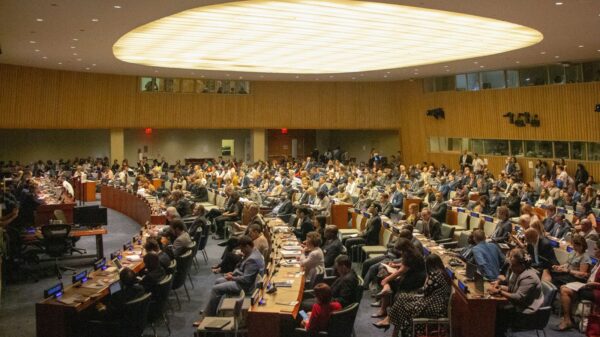
Last month, the Biden Administration announced a ‘temporary pause’ on pending exports of liquefied natural gasses, known as LNGs, to countries that do not have a free trade agreement with the United States. The ban remains in place while the Department of Energy will investigate authorizations.
A free trade agreement, or FTA, according to the International Trade Administration, is “an agreement between two or more countries where the countries agree on certain obligations that affect trade in goods and services, and protections for investors and intellectual property rights, among other topics.”
This means that FTAs enable countries to set boundaries concerning trade and investment relations between them.
This pause holds significance as the United States is the biggest export of LNGs worldwide, which establishes the U.S. as an energy powerhouse that supports other countries.
Several European nations including the United Kingdom, Netherlands, Germany and Spain will be impacted by this pause as they were the recipients of significant LNG imports from the U.S. last year.
Several climate and business groups welcomed the Biden administration’s move, seeing it as a step toward limiting access to LNGs and a move towards reducing pollution levels and dependence on nonrenewable energy sources.
The American Sustainable Business Network, representing small business owners around the country, shared a response through the organization’s Climate and Energy Working Group Chair, Michael Green.
“The pause on new Liquified Natural Gas exports is a major step forward in our collective efforts to address the massive threats posed by the climate crisis and continue the momentum for our transition away from fossil fuels to a clean energy future,” Green said.
House Republicans were not too happy with the move, with concerns that the U.S. would be relinquishing power over the energy trade sphere and compromising national security.
In response, Congressman August Pfluger (R-Texas) sponsored a bill aimed at reversing the export pause.
“President Biden has used every weapon and every tool available to him to make producing American energy more difficult,” Pfluger said in a press release.
“His decision to ban… is just the latest strike in his efforts to appease his radical climate interest groups who refuse to accept the reality that American energy is the cleanest, most secure option for the U.S. and our allies” Pfluger concluded.
The House passed the bill Wednesday 224-200, yet it seems unlikely to deter Biden’s plans.
Biden’s environmental policies could possibly appeal to the youth demographic which would be a significant factor in the November elections.
A Tufts Survey from November 2023 found that 26 percent of young voters between 18 and 34 ranked climate change as one of their most important concerns. Of these environmentally-conscious voters, 72 percent announced an intention to vote, 2 percent higher than voters who prioritize abortion and 8 percent higher than those who emphasized gun violence.
As it stands, some Howard students are not impressed.
Trey Bennett, a junior biology major from Atlanta, is among those who believe that the Biden administration is falling short of expectations, expressing a sentiment that they are not “doing enough,” in addressing pertinent issues.
“Every decision that we make is about 10 years behind,” he said. “Yesterday we needed to stop using fossil fuels, and [we] need to limit the amount of CO2 gas we produce.”
Bennett said he intends to vote for Biden in this year’s election, but expects more from him in the future concerning the environment.
Christiana Bennett, a fifth-year architecture major from Baton Rouge and Arnaudville, Louisiana, was more critical of the Biden administration.
“The climate crisis in this country is expedited by the poor infrastructure,” she said.
Her solution would be giving land back to and funding Indigenous communities to control their share, while “investing in infrastructure and trains” for the country as a whole.
“I still believe they’re a lackluster administration… they still continue to incentivize companies and the wealthy who can afford to make those changes,” Bennett said. “Their policy on the climate crisis hasn’t really been impactful whatsoever.”
As the climate crisis continues to surmount, diverse perspective highligh the challenges and expectations facing environment in the current political landscape.
To remain informed on voting and elections visit USAGov.
Daniel Young is a political science minor who reports on business from an angle of US politics.
Copy edited by D’ara Campbell













